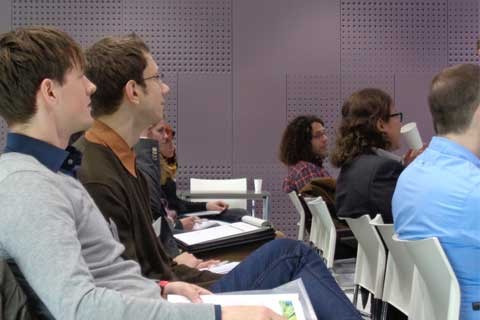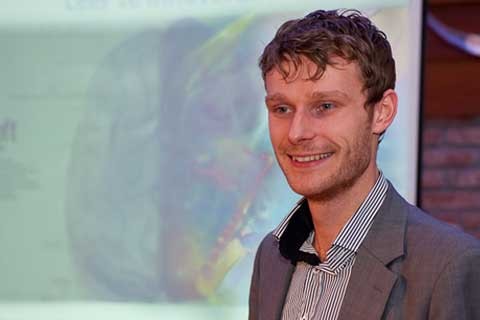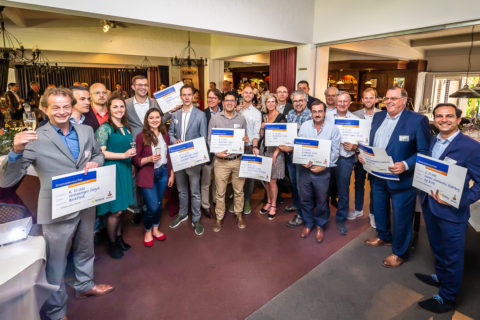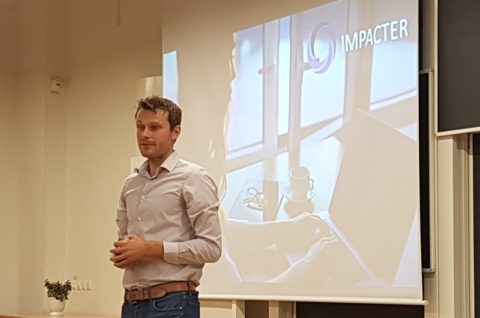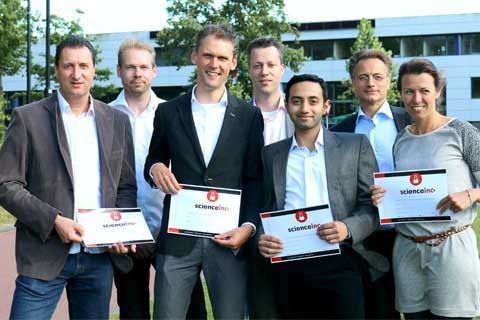In this blog, we will discuss perhaps the most existential argument against utilization that we encounter in practice: knowledge has intrinsic value and therefore the question of ‘societal relevance’ is already answered. Pushing at the ‘frontier’ of knowledge, the curiosity driven journey towards knowing or ‘blue skies’ research is relevant by its very nature. The argument is an appeal to a norm: the holy sense of pursuit that sets us apart from other animals.
This argument appeals to beliefs or values. Or in the words of Robert R. Wilson (The founder of the Fermi Lab) when asked what the Fermi laboratory would contribute to the defense of the US: “(…) it has nothing to do directly with defending our country, except to help make it worth defending.”
You can believe or disbelieve this intrinsic value of knowledge. But some scholars add another reason. They believe in a ‘basic science in, applied science out’ conundrum (the linear model). The argument is phrased in various degrees of ‘holier than thou’ attitude, such as by H.A. Rowland in 1883: “To these few men [students who study nature] the world owes all the progress due to applied science, and yet very few ever received any payment in this world for their labors” or even more controversial: “Should we stop progress [of pure science], and attend only to its applications, we should soon degenerate into a people like the Chinese, who have made no progress for generations, because they have been satisfied with the applications of science, and have never sought for reasons in what they have done.” More recently: “The critique is that we cannot afford NASA, but the reality is that no one can put a price tag on that kind of research, that kind of education, that kind of intellectual inspiration that drives innovation for generations to come.”
You can have, like the examples above, a strong conviction about the superiority or inferiority of basic versus applied science. But the case we instead want to make is this: if we forego the issue of which one is more favorable, I think everyone will agree that science that combines fundamental progress and application will be most valuable. Even the most fundamental and basic science could be applied through satisfying the curious appetites of an interested public.
What we’re in fact arguing is Donald Stokes’ addition to the Vannevar Bush Model: The Pasteur Quadrant. 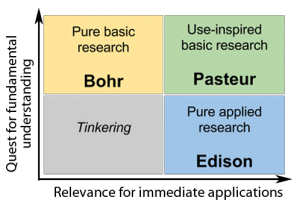 Bush defined basic research as “Find more general physical and natural laws to push back the frontiers of fundamental understanding”, but if we phrase this next to applied science, we’re missing an important category. Donald Stokes argued: there are many examples of basic research that were inspired by practice. “There is no doubt that Pasteur wanted to understand (…) but the mature Pasteur never did a study that was not applied while he laid out a whole fresh branch of science.” Even more, there are examples of phenomena that could only be studied because technology had progressed. The linear model is not a one-way street: it is an exchange that culminates in the combination of both.
Bush defined basic research as “Find more general physical and natural laws to push back the frontiers of fundamental understanding”, but if we phrase this next to applied science, we’re missing an important category. Donald Stokes argued: there are many examples of basic research that were inspired by practice. “There is no doubt that Pasteur wanted to understand (…) but the mature Pasteur never did a study that was not applied while he laid out a whole fresh branch of science.” Even more, there are examples of phenomena that could only be studied because technology had progressed. The linear model is not a one-way street: it is an exchange that culminates in the combination of both.
Let us embrace the ambition that basic science should satisfy the curiosity of a larger audience, and is thereby applied to serve a societal need. And let applied science inspire further quests in basic science. Shouldn’t we then agree that asking “basic or applied” doesn’t really suffice? Instead, shouldn’t we ask: how can we be more like Pasteur?

